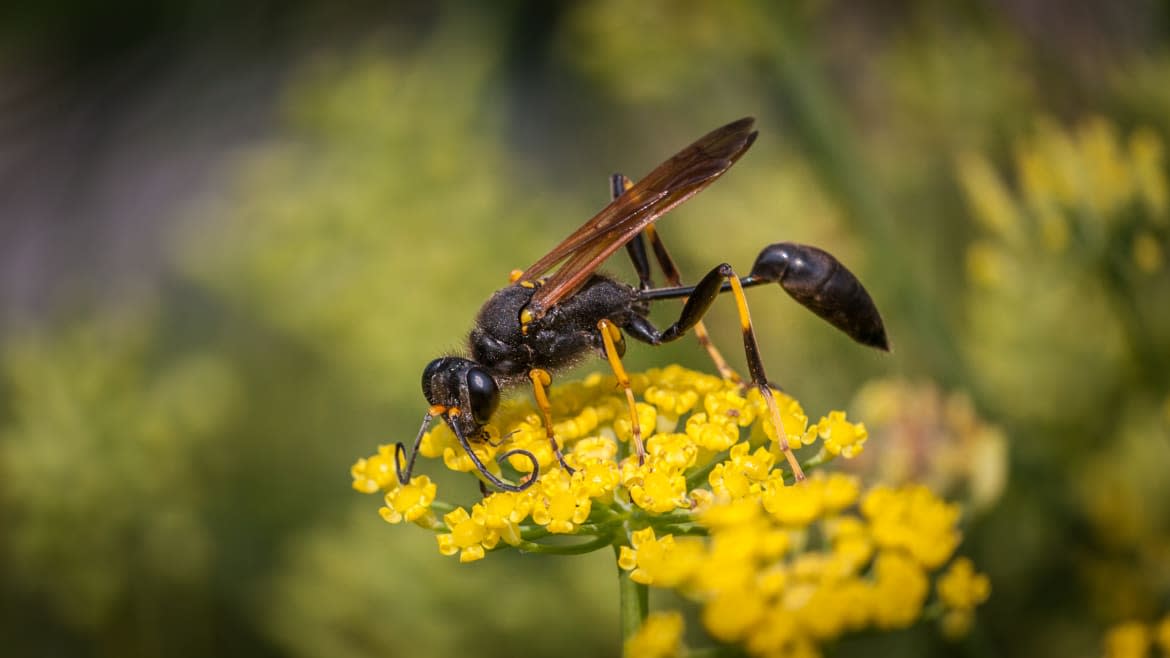This Wasp Fights Predators Using Its Genitals Like a Spear

Nature is all about survival of the fittest. Creatures have to constantly adapt in order to live in a world filled with predators trying to kill them. This might mean growing hard shells like turtles and crabs, or developing camouflage like an octopus and lizards—and, occasionally, turning your genitals into a sharp spear to fight off predators.
Researchers at Kobe University in Japan published a paper on Dec. 19 in the journal Current Biology where they found that male mason wasps use their genitals to stab predators such as frogs in order to escape being eaten. The wasps’ members disturbingly have sharp spines on them that allow them to fight off any attackers. However, they don’t appear to use them on female wasps while mating.
Are you a weirdo who’s wondering what it looks like when a wasp uses its junk to fight a frog? It’s your lucky day:
The findings were a surprise for a number of reasons. For one, researchers previously thought that male wasps couldn’t sting to fight predators because they lacked stingers dubbed ovipositors, which female wasps use to lay eggs. However, the Kobe University ecologists discovered that the males wielded two sharp spines on its genitals after a co-author of the study was accidentally stung by an adult male mason wasp. This led them to suspect that they use their genitals for self-defense.
To confirm their findings, the researchers pitted male wasps against a group of 17 pond frogs and 17 tree frogs. In experiments, all pond frogs successfully attacked and ate the male wasps while 35.3 percent of tree frogs spat out males after being stung with their genital spears. To confirm their findings, the tree frogs were also given male wasps with their genitals removed (yikes) and all the wasps were mercifully eaten.
The study’s authors also pitted female wasps against the frogs, finding that while all the pond frogs attacked and ate the females, just 47.1 percent of tree frogs attempted to attack the females and 87.5 percent rejected them completely. For the researchers, this shows that females have the edge on male wasps when it comes to self-defense.
So it’s yet another great example of evolution in action to provide unique ways to defend against predators—though it might be worth noting that this isn’t something we recommend humans do to defend against danger.
Got a tip? Send it to The Daily Beast here
Get the Daily Beast's biggest scoops and scandals delivered right to your inbox. Sign up now.
Stay informed and gain unlimited access to the Daily Beast's unmatched reporting. Subscribe now.

 Yahoo News
Yahoo News 
